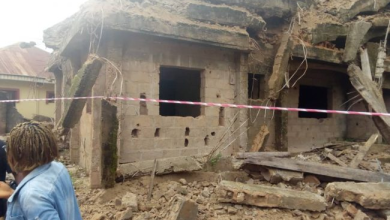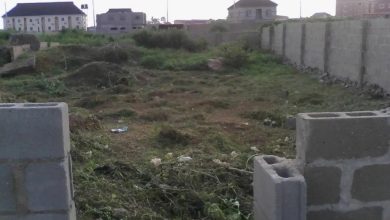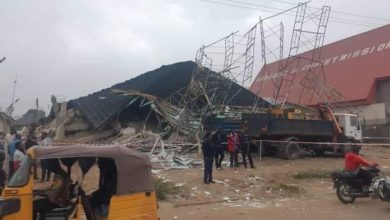
It is no longer news that Nigeria has overtaken other African countries as the country with the most Real Estate investments.
This feat was achieved thanks to a growing population of over 200 million people. Despite this feat, Nigeria, like most African countries, is bedevilled by numerous economic and political woes that have hurt the country’s real estate sector making it difficult for the sector to thrive better.

The coronavirus pandemic increased drastically the risk in the capital market. The volatile nature of the equity capital market in this post-pandemic era is one of the reasons why there is a drastic drop in returns in Nigeria.
Because the real estate sector is a component of this financial system, most protective investors will reconsider investing in real estate. Additionally, the raising capital for lands, fees, and construction costs have made things more difficult for estate agents.
One major effect of this problem is the impact on the Nigerian economy by limiting the flow of cash in the real estate sector, thereby having a very negative effect on the country’s Gross Domestic Product.
The ongoing rise in the price of most Nigerian homes is posing a significant challenge to the country’s real estate sector. Most Nigerian cities are overpriced, which discourages potential investors. Rivers, Lagos, and Abuja are the most affected cities, all of which are important commercial hubs.
Read Also: Inq. Digital Nigeria champions campaign for more girls in ICT
Furthermore, the exorbitant price tag has widened the social divide between different income earners. In short, there are some areas where a middle-income earner, let alone a low-income earner, cannot afford to rent a home.
Taking Lagos State as an example, certain housing units are occupied by the wealthy and cannot be afforded by low-income earners. When this happens, combined with the country’s rising economic woes, people tend to flock to less expensive areas, putting a damper on hopes of a possible drop in rent costs.
Environmental, Social and Governance (ESG), a set standard that is used to evaluate the environmental and climate effects of housing units is a major factor in the Nigeria Real Estate sector. Most apartments are characterised by pollution, the prevalence of waste in public areas, lack of trash bins for proper waste disposal, and more.

This is not just mostly prevalent in big cities such as Lagos, Abuja, Port-Harcourt and Kano but is also common in some local communities. More so, according to the Global Housing Standard, real estate professionals should be concerned about greenhouse gas emissions. Some real estate practitioners in Nigeria disregard this standard, resulting in widespread environmental and climate change in most areas of the country.
Statistics show that Nigeria’s ESG indexes grew by approximately an additional 40% in 2020. This is said to have been primarily influenced by matrices determined by how Nigerians handled waste and how conducive their environment was. Another important factor that contributed to the exponential increase was the high proportion of healthy residents compared to the low rate of medical cases caused by environmental factors.
Furthermore, the depreciation rate of the Naira is a major source of concern for the real estate sector and other sectors of the Nigerian economy. The failure of the government to subsidize the cost of building materials after so many failed promises adds insult to injury, forcing contractors and building engineers to purchase this expensive construction equipment at exorbitant prices across the country.
Notwithstanding, though not taken seriously by the government, housing experts have made several recommendations for the country to become self-sufficient in the manufacturing of building materials. These recommendations have yet to bear fruit, but in the meantime, Real Estate investors in Nigeria will most likely be purchasing construction materials at exorbitant prices, aided by rising naira depreciation for who knows how long.
The increase in rural-urban migration occasioned by the inability of the government to create jobs in the rural communities is a major factor. The large influx of renters from rural areas to urban areas has had a significant impact on property regulation in the country. As a result of this unchecked migration, the prices of home rent have increased drastically over the years. In places like Abuja, the price of a 1 bedroom apartment which was around N300,000 to N350,000 in the semi-urban areas of the city is now at an all-time high of N450,000 to N500,000.
Even though rent prices in rural areas are relatively low, people flock to urban areas in search of white-collar jobs and greener pastures due to a lack of investment opportunities in other sectors of the economy, especially agriculture. As a result, most real estate managers and agents capitalize on this flow by raising house rents.
Similarly, Estate laws are generally not properly implemented in Nigeria, which has resulted in many cases where investors have been deprived of the land they legally purchased. This problem is very common in Abuja and Lagos. It is primarily orchestrated by a group of land grabbers commonly known as omo-onile in Lagos.
These well-known property scammers have a penchant for dubbing investors with the settlement fee tag. They are also commonly found on construction sites where building projects are in progress, where they either violently or deceitfully extort.
In Lagos State for instance, despite the city’s law, which guarantees offenders 21 years in prison, land grabbers continue to thrive in certain areas of the State. There have been numerous cases where people’s land has been forcibly taken and buildings demolished, rendering the property protection law ineffective.
One such case happened recently in Abuja where the house of a prominent Magazine publisher and aspiring politician in Nigeria, Prince Kpokpogri was demolished.

This problem that has remained largely unchecked appears to be deterring a significant number of real estate investors from investing in Nigerian property.
Buildings collapsing in various parts of the country indicate that the construction materials used by some contractors are subpar. In short, some of these building contractors in Nigeria lack the necessary educational credentials and professional experience.
This persistent problem appears to have become a source of concern for the majority of Nigerians, and if allowed to persist, it may succeed in tarnishing the image of the country’s real estate sector taking it backwards. Presently, some buildings in certain industrial areas of the country do not meet construction standards, which is largely due to the incompetence of the responsible building contractors, a lapse on the part of regulatory agencies.
Finally, the importance of real estate to the economy of Nigeria cannot be overemphasized. It is undoubtedly a major economic driver and has generated wealth for the country. Despite the fact that it is the largest Real Estate market in Africa, it has faced these critical challenges over the years without the government making significant efforts to tackle them.
No country grows to its full potential without a healthy Real Estate sector. It is time the government makes deliberate efforts to tackle these problems for the betterment of the country.




